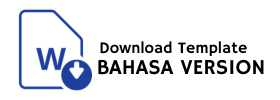The Influence of Accounting Students' Perceptions of the Auditor's Work Environment and Socio-Cultural Factors on Their Career Choices as Auditors
DOI:
https://doi.org/10.38035/dar.v1i1.247Keywords:
Work Environment, Social Value Factor, Career Choice As AuditorAbstract
This study aims to determine (1) the effect of accounting students' perceptions of the auditor's work environment on their career choices as auditors, (2) the influence of socio-cultural factors on their career choices as auditors, (3 Effects of accounting students' perceptions of the auditor's work environment and socio-cultural factors on the auditor's work environment). career choice as an auditor. This type of research is descriptive quantitative using a questionnaire method. The results show that (1) the work environment has a significant effect on career choice as an auditor. (2) socio-cultural factors have a significant effect on career choice as an auditor. (3) work environment and social value factors simultaneously influence career choice as an auditor.
References
Hertina. 2011. Sociology. Pekanbaru: Suska Pres.
Husna, Miftahul. 2020. The Effect of Worklife Balance and Work Strategy on Employee Performance with Organizational Citizenship Behavior (OCB) as a Mediation Variable at PT. PLN (Persero) UP2B Central Sumatra. Accessed on 28 July 2021 from http://scholar.unand.ac.id/id/eprint/72641
IAI. 2014. Indonesian Association of Accountants. ( Online ), (iaiglobal.or.id/v03/image/ca/PMK Akuntan 2014.pdf, accessed December 8, 2020).
Ikhsan, LubisArfan. 2010. Behavioral Accounting ( second edition ). Jakarta: SalembaEmpa.
Koentjaraningrat. 1991. Introduction to Anthropology . Yogyakarta: Rosdakarya Youth.
Marwansyah. 2015. Human Resource Management. Bandung: Alphabet.
Mercubuana.ac.id, “Accounting Profession Education”, 30 August 2014 .(Online) , ( http://mercubuana.ac.id/id/akademik/profesi/profession-feb/dinding-kumham , accessed 7 December 2020).
Merdekawati, Dian Putri, and Ardiani Ika Sulistyawati, 2011. Factors Influencing Career Selection of Public Accountants and Non-Public Accountants. Assets, Vol. 13, No. 1:9-19.
Rivai, Veithzal. 2016. Human Resource Management for Companies: From Theory to Practice. Jakarta: Rajawali Press.
Rusdiansyah, Yunifan. 2017. Factors Influencing Career Selection to Become a Public Accountant. Journal of Accounting Science and Research, Volume 6, Number 9
Setiadi, M. et al. 2012. Basic Social and Cultural Sciences. Issue 2. Jakarta: Kencana Prenada Media Group.
Soekanto, Soerjono. 2011. Principles of Sociology of Law. Cet. 20. Jakarta: PT. King of Grafindo Persada.
Sukandarrumidi. 2006. Research Methodology . Yogyakarta: Gadjah Mada University Press.
Sunyoto, Danang. 2014. Basic Concepts of Marketing Research & Consumer Behavior. Yogyakarta: CAPS
Suyono, Nanang Agus. 2014. Analysis of Factors Influencing Career Selection as a Public Accountant (Empirical Study on UNSIQ Accounting Students). Journal of PKM II (2014) 69-83. ISSN: 2354-869X.
Taneko, soleman B, 1986. Conception of the Indonesian Social System and Social System . Jakarta: Dawn of the Great.
Walgito, Bimo. 1990. Introduction to General Psychology. Yogyakarta: Andi Offset.
Weygandt, JJ, DE Kieso, and PD Kimmel. 2007. Accounting Principles (seventh edition). Translated by Ali Akbar, et al. Jakarta: Salemba Empat.
Yudi, Henry. 2008. The relationship between socio-cultural factors and the nutritional status of children aged 6-24 months in Medan sub-district, Medan city area, 2007. (Thesis). Medan: Health Administration and Policy.
Downloads
Published
How to Cite
Issue
Section
License
Copyright :
Authors who publish their manuscripts in this journal agree to the following conditions:
- Copyright in each article belongs to the author.
- The author acknowledges that the DAR has the right to be the first to publish under a Creative Commons Attribution 4.0 International license (Attribution 4.0 International CC BY 4.0).
- Authors can submit articles separately, arrange the non-exclusive distribution of manuscripts that have been published in this journal to other versions (for example, sent to the author's institutional repository, publication in a book, etc.), by acknowledging that the manuscript has been published for the first time at DAR.


























